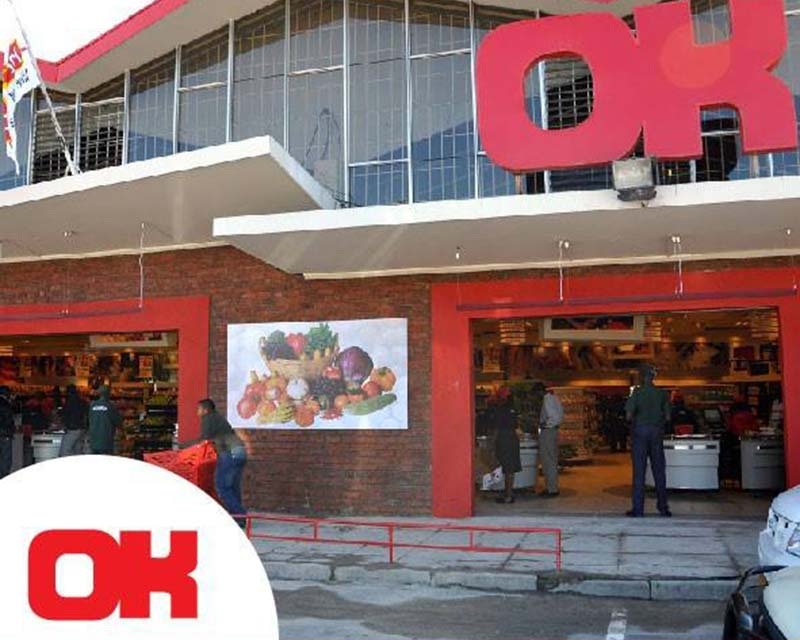
Tafara Mtutu THE weight of being a formal business continues to take its toll in the country after OK Zimbabwe’s latest results were marred by growing costs and shrinking margins.
The stock subsequently shed 16% on the Zimbabwe Stock Exchange (ZSE) in the two days after they were made public because of earnings that arguably fell short of the market’s expectations, among other factors.
However, we opine that the performance of the retailer does not speak to the business’ performance more than it does to the challenges of being a formal business in Zimbabwe in recent times.
The business has been lamenting the punitive taxes that have been cutting into profitability since the introduction of the intermediary money transaction tax (IMTT).
The goal of the tax, when it was introduced in 2019, was to collect tax from the informal businesses. However, this inadvertently led to additional tax burden on formal businesses, and the strong preference for cash among informal businesses resulted in the tax failing to achieve its primary goal.
We also opine that there is limited room to pass these additional costs to consumers given the influx of informal retailers throughout the country, who offer competitive prices as well as the loss in real value of both the Zimbabwean dollar (ZW$) and United States dollar (USD)-denominated disposable incomes since the impact of Russia-Ukraine conflict cascaded to all parts of the world.
In addition, improved inflows of US dollar revenues for the retailers amid FX shortages have been tainted by an even more punitive 4% IMTT on nostro transactions — a move made by the authorities to incentivise liquidation of nostro balances on the formal currency market.
Another challenge that formal retailers have to contend with is the more appetising terms that informal retailers offer to suppliers. The traditional retailing system has always thrived on retailers like OK acting as off-takers for a supplier’s product.
- Chamisa under fire over US$120K donation
- Mavhunga puts DeMbare into Chibuku quarterfinals
- Pension funds bet on Cabora Bassa oilfields
- Councils defy govt fire tender directive
Keep Reading
Given the convenient access to mass markets that retailers typically provide, they often had the bargaining power to dictate payment terms to suppliers, such as paying after three months.
While the model still works in stable markets, volatile macro-economic fundamentals in Zimbabwe have made this difficult for suppliers to the extent that many of them now prefer informal retailers, who pay upfront and oftentimes in the much-needed hard currency.
As a result, distribution channels for manufacturers are slowly tilting towards informal retailers, a trend which could become problematic for formal retailers if their business model remains as is.
Dairibord and Delta Corporation, for example, are a few of the country’s major manufacturers that acknowledge the relevance of informal retailers who are a good “cash/near cash” distribution channel.
Over 30% of Dairibord’s distribution channels are near cash while the proportion exceeds 25% for Delta.
We also note that the preference for hard currency also hinges on how cheap it is relative to nostro balances. Transactions in hard currency do not come with a 4% IMTT tax, as is the case with nostro balances.
Given the high velocity of money in fast moving consumer goods (FMCGs) retail, this would certainly incentivise retailers to opt for hard cash transactions that come with fewer costs.
We also note additional headwinds emanating from the sprawling wholesale stores in the country, particularly with regards to the rapid expansion among two of the largest wholesalers in the country, Metro Peech & Browne and N Richards.
Metro Peech & Browne has established 16 stores in 12 years and N Richards’ network of stores has increased to 39 since its inception 30 years ago.
Given OK’s 68 stores in 80 years, this implies that these wholesalers have been growing, on average, 1.5x faster than the formal retailer.
The expansion of the wholesale market is slowly growing into formidable distribution channel that threatens the formal retail market’ bargaining power over suppliers and customers. These new dynamics mean that formal retailers could be face a squeeze on terms with suppliers as well as heavy resistance on inflation-induced price revisions.
In all this, we maintain that there remains a market for formal retailers to stay afloat. Mass market retailers like OK, Choppies, Spar and Pick n Pay still account for a significant chunk of suppliers’ distribution channels.
Within the formal FMCG retail space, we identify Meikles’ TM Pick n Pay stores as winners. The group’s virtual divestment from the Agriculture and Tourism & Hospitality sectors over the last three years has allowed the group to engage in an expansion drive that is more aggressive than OK and popular wholesalers.
The Pick n Pay network of stores has been growing 1.1x faster than wholesale stores and 1.5x faster than OK Zimbabwe, and it continues to anchor many of the new suburban retail spots throughout the country.
The business also leverages from its strategic partnership with Pick n Pay South Africa, which allays several supply and pricing concerns. This partnership allows Pick n Pay outlets in Zimbabwe to consistently supply imported products on their shelves and at competitive prices even during a volatile macroeconomic environment marked with policy inconsistency.
- Mtutu is a research analyst at Morgan & Co. — tafara@morganzim.com or +263 774 795 854.










